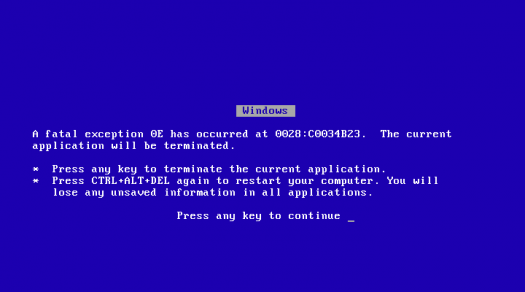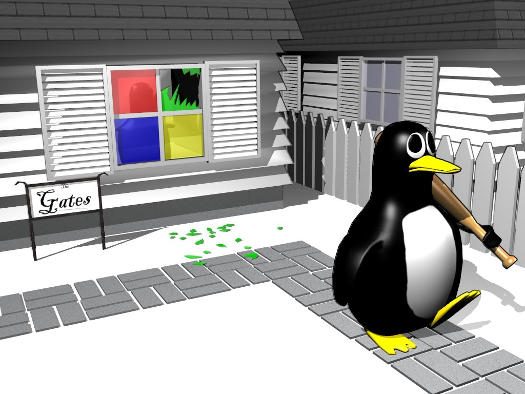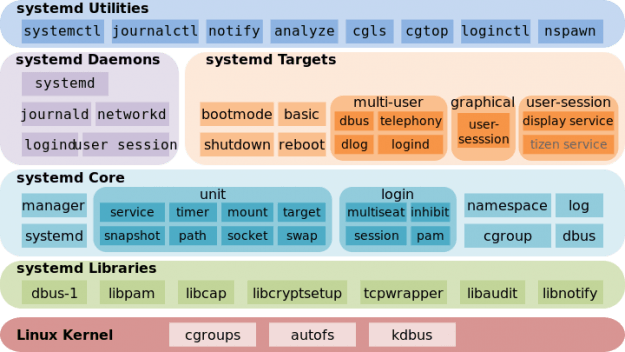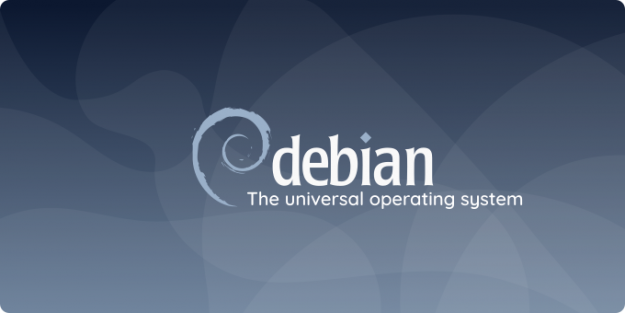While the use of systemd by most Linux distros remains a subject of controversy, the recent vote by Debian members to support systemd while exploring other alternatives seems to indicate the init system is gaining acceptance.
Posts published in “Operating Systems”
Why Debian Is the Gold Standard of Upstream Desktop Linux
The last decade or so has seen Debian largely repositioned as an upstream distribution, making it an essential component of the desktop Linux infrastructure. Does your distro have "Debian Inside"?
The Great GNU/Linux Division
With or without the nod to GNU with the moniker GNU/Linux, desktop Linux is still the same under the hood. A rose is still a rose, as they say.
Eelo: Gaël Duval’s Open Source, Privacy Respecting Android Phone Clone
Mobile, News and Operating Systems
The man behind the first user-friendly Linux distribution now seeks to produce a free-as-you-want-it-to-be Android phone that respects user rights.

Are you ready for a new operating system for your Android phone? An operating system that’s totally free and thats main purpose isn’t to get you to consume? How about an operating system that, although based on Android, brings to the table some of the best aspects of Linux — like (eventually) it’s own repository of apps? Well, get ready, Gaël Duval is working to bring eelo to the table.
Christine Hall has been a journalist since 1971. In 2001, she began writing a weekly consumer computer column and started covering Linux and FOSS in 2002 after making the switch to GNU/Linux. Follow her on Twitter: @BrideOfLinux
I No Longer Hate Microsoft
Why should you let Microsoft ruin an otherwise perfect day?

Roblimo’s Hideaway
When I was younger, I got together with friends now and then for an evening of drinking beer and discussing the perfidy of Microsoft and just how bad Windows was technically, especially considering the endless amount of R&D money poured into it.
Robin “Roblimo” Miller is a freelance writer and former editor-in-chief at Open Source Technology Group, the company that owned SourceForge, freshmeat, Linux.com, NewsForge, ThinkGeek and Slashdot, and until recently served as a video editor at Slashdot. Now he’s mostly retired, but still works part-time as an editorial consultant for Grid Dynamics, and (obviously) writes for FOSS Force.
Imagine an Android Phone Without Linux Inside
Google has plans to replace Linux-based Android with its own built-from-scratch operating system, Fuchsia. Why? Mainly, it seems, to get away from the GPL.

Roblimo’s Hideaway
Google Fuchsia first saw the light of day in the summer of 2016 as an unannounced bit of code posted on GitHub. Now, in May 2017, the word is being spread by so many tech news outlets that we don’t have room to list them all.
Robin “Roblimo” Miller is a freelance writer and former editor-in-chief at Open Source Technology Group, the company that owned SourceForge, freshmeat, Linux.com, NewsForge, ThinkGeek and Slashdot, and until recently served as a video editor at Slashdot. Now he’s mostly retired, but still works part-time as an editorial consultant for Grid Dynamics, and (obviously) writes for FOSS Force.
Linus Torvalds Talks to Debian Users
A little over two-and-a-half years ago, Linus Torvalds spent over an hour taking and answering questions from an audience of developers at DebConf14 in Portland, Oregon. Some of what he said is by now old news, but that’s interesting too, as it serves as a marker for where we’ve been.

The Screening Room
Usually when you see Linus Torvalds speaking at a conference, it’s in the form of an interview, with the interviewer more likely than not being his old friend Dirk Hohndel of VMware. Very famously, Torvalds “doesn’t do speeches.” However, back in August, 2014, he took another tack, which he sometimes does, and submitted himself to answering questions from the audience at the Debian developer conference, DebConf14, in Portland, Oregon.
Sex, Love & Software: History of Free Software, Linux and Open Source
Take a trip through the history of free software, Linux and open source, starting from the early days in the 1980s through 2001, when this film was made.

The Screening Room
A few weeks back, when we featured Brian Lunduke’s interview with Richard Stallman, we lamented the fact that most users who come to GNU/Linux these days seem to have little knowledge of the history of free software, Linux and open source. This is not good, for without a community of supporters, free tech cannot survive.
Stuart Keroff Receives Distinguished Humanitarian Award for Asian Penguins
Asian Penguins is another illustration of giving the gift of Linux to help cross the digital divide.

The Screening Room
Stuart Keroff, a visionary middle school teacher in St. Paul, Minnesota, recently received a distinguished humanitarian award for his work in founding Asian Penguins computer club at the Community School of Excellence. This club refurbishes computers with Linux to be used both at the school itself and to deliver to the homes of students who don’t own a computer at home. View the video made by the Minnesota State University – Mankato Campus – to learn more about this award.
For the past 10 years, Phil has been working at a public library in the Washington D.C.-area, helping youth and adults use the 28 public Linux stations the library offers seven days a week. He also writes for MAKE magazine, Opensource.com and TechSoup Libraries. Suggest videos by contacting Phil on Twitter or at pshapiro@his.com.
It’s Windows Time in Linux Land Again
Using Windows. What a horrible thing to ask a Linux user to do.

Every year at this time I have to scramble to boot into a Windows partition to do my taxes. I could do them online, safe and secure in my Linux comfort zone, but I do taxes for three people and all the online services want to charge extra for each and every return. If I download and install the software onto my own machine, there’s no extra charge. Trouble is, none of the big three tax programs supports Linux. Tax Act, the cheapo bottom of the barrel one that I use, doesn’t even support Mac.This means that every April I get a reminder of what a pain Windows can be.
Christine Hall has been a journalist since 1971. In 2001, she began writing a weekly consumer computer column and started covering Linux and FOSS in 2002 after making the switch to GNU/Linux. Follow her on Twitter: @BrideOfLinux










